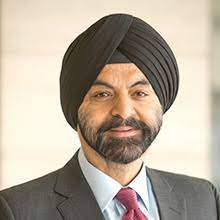With available data indicating that nearly 600 million Africans currently lack electricity, the World Bank Group, African Development Bank (AfDB), Mission 300 and other global partners are rallying funding and other efforts to ensure that 300 million Africans to electricity within the next five years.
The initiators of the ambitious project told participants at the Africa Energy Summit in Dar es Salaam, Tanzania, held on Monday that the goal to address Africa’s electricity access gap using new technology and innovative financing was achievable through collaborative effort and commitment to its implementation
Speaking during the first panel discussion of the opening day of the two-day Summit, AfDB President, Dr. Akinwumi Adesina, said that practical solutions to achieve the ambitious goal, from regulatory reforms to private sector engagement would be required.
The development finance expert advocated active involvement from a wide range of stakeholders, including bilateral and multilateral institutions, private sector entities, civil society organizations, and foundations.
He said: “This is mission critical… Our mission here is to say we need everybody. It’s not about us, it’s about those who are not here, and we must listen and hear and make sure this is an action-driven summit.
“We can’t do Mickey Mouse business. We can’t have a situation where Africa does not have enough electricity.”
Adesina told the participants, comprising several African energy ministers, international development partners and private sector titans, civil society organizations, and foundations, that the World Bank, AfDB and their partners had a clear path to reaching these 300 million people targeted under the initiative.
While emphasizing that the programme seeks to transform Africa’s vast potential into reality through comprehensive electrification, the banker maintained that “with power, Africa will not just meet expectations but exceed them, becoming a competitive and prosperous continent.”
According to him, Mission 300 will incorporate robust accountability measures, including country-specific monitoring and evaluation systems and the Africa Energy Regulatory Index to track progress.
He said: “This is all about accountability, transparency, and delivery while letting Africa develop with pride.”
Adesina also spoke on the devastating impact of traditional cooking methods based on firewood and charcoal on lives and fauna, resulting in the death of 600,000 women and children annually due to smoke exposure.
He pointed out that the crisis extended beyond energy access, affecting environmental sustainability through deforestation and biodiversity loss.
The AfDB boss clarified: “It’s not just about energy transition. This is about dignity. Africa must develop with dignity and pride, and access to clean cooking solutions is fundamental to achieving this goal.”
He commended the Tanzanian government for developing a comprehensive national strategy to address this worrisome problem.
Speaking at the forum, World Bank Group President, Ajay Banga, expressed optimism about the initiative, saying its ambitious objectives are achievable through hard work, particularly in ensuring a conducive environment for the private sector to participate.
He harped on the need for predictability of currencies, regulatory frameworks and land acquisition to incentivize investments supporting Mission 300.
In his remarks, , President of The Rockefeller Foundation, Rajiv Shah, appealed to global philanthropists to support the initiative to which his foundation is committing $65 million.
.
Shah pleaded: “Please join us in getting behind the ideas of this initiative and the country compacts that the leaders will be signing. What is at stake is the future of African economies, the future of African young people, and the future of our world.”
Speaking after the fireside chat, United Nations Deputy Secretary-General, Amina Mohammed, stressed that energy access remained not merely about power delivery, but about what that power will connect and enable.
According to her, it is important that stakeholders “see food systems at the helm of all of this, and that they are powered by the energy that you will connect.”
Mohammed explained how energy connectivity would catalyze transformative change in rural communities, particularly for women and youth, through access to digital financial services, online education, and e-commerce opportunities, pointing out, however, that realizing these ambitions would require significant financial engineering and private sector engagement.
She expatiated: “The private sector’s got to lean in and it won’t lean in if the message is that your finance environment is not conducive to us. When you want to put together the financing for energy it is not easy and it requires many people at the table in parallel with what we are doing, the policy and the regulation, designing these pipelines and getting the money ready.”






